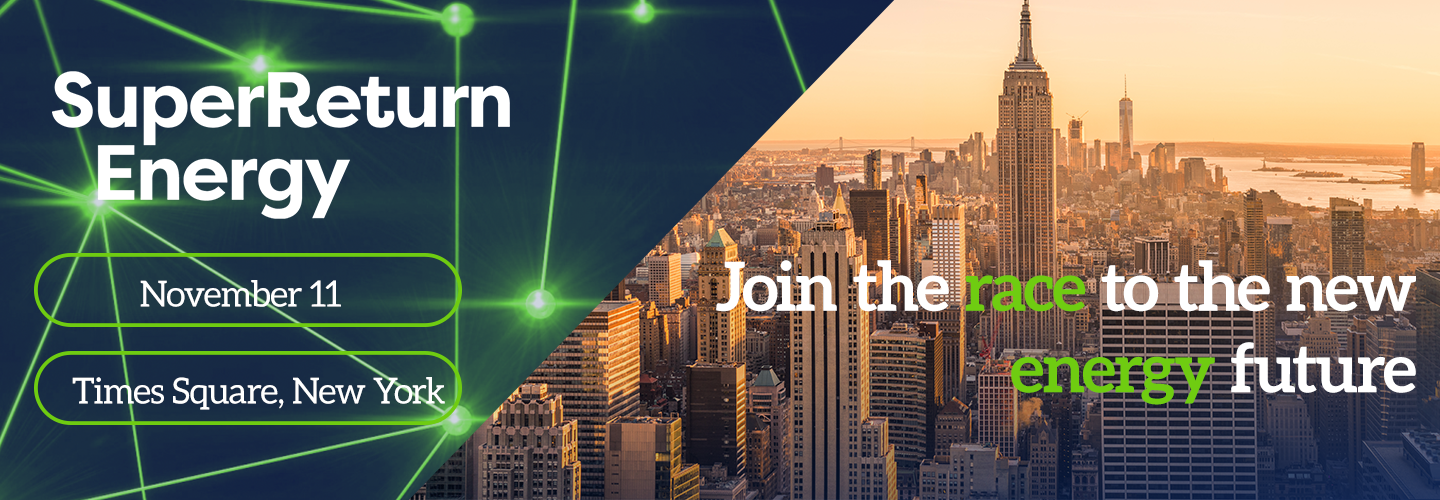From the red blue rumble: The United States of arbitrage and abundance

The energy sector is at the heart of economic and political shifts, especially as technology and environmental concerns reshape global investment priorities. In the Asia-Pacific region, opportunities in sustainable and traditional energy sources are driving new investment strategies. James Pinkerton, a seasoned political strategist and speaker at SuperReturn Energy, brings a unique perspective on how energy investment in both blue and red states could lead to collaboration and innovation. As political polarization drives regional economic competition, energy remains a critical factor in both economic growth and technological advancement, particularly in markets like APAC.
Here’s one safe prediction about the 2024 presidential election: Whoever wins, half the country is going to be furious. That is, if Kamala Harris wins, Donald Trump supporters will be in a fury. If Trump wins, the same will be true, in reverse.
Such polarization is typically regarded as a negative. But what if it’s actually a positive? What if increased political negativity brings forth a new burst of economic creativity? Creativity from entrepreneurs scattered across the 50 states? That would be good news for investors.
This much is sure: Polarization has taken a toll on the federal government. A Pew poll finds that just 16 percent of Americans have confidence in the feds; that’s a fifth of what it was in the 1950s and a third of what it was in the early 2000s. This fall-off helps explain why federal revenues are drifting downward; in 2023, to just 16.2 percent of GDP. It’s a simple enough point: If the USG is unpopular, fewer will feel good about paying more tax—or paying any tax at all.
Interestingly, even more tax reductions are on the table. Trump wants to eliminate taxes on tips and increase the child tax credit, positions now echoed by Harris. Indeed, Harris wants a new tax break for small business.. Yes, she has advocated some activist and tax-hiking positions, but these stances have been submerged by her fellow Democrats--and softened by she herself.
Meanwhile, the Supreme Court has significantly restrained federal regulatory power in a a string of decisions, culminating in 2024’s Loper Bright. It’s fair to say that every regulated industry is now looking at opportunities to peel back federal red tape; for instance, Kroger is suing the Federal Trade Commission, accusing it of operating unconstitutionally. The outcome of that case is hardly certain, and yet it speaks to the spirt of the age—it’s open season on federal authority. The economy’s animal spirits are being loosed.
The result is more power to the states and to private enterprise. For instance, in defiance of the Biden Administration, Texas is building a border wall. Speaking of Lone Star, a new stock exchange is coming to Dallas.
All this bespeaks a burgeoning of state and regional power; political and financial players, operating outside of Washington, DC and New York City, are now able to pull in resources from increasingly nimble capital markets.
The result is heightened competition, which we can call the red-blue rumble. For their part, red states are mindful that they typically have lower tax- and regulatory burdens than blue states. Yet some blue states, notably California, have a huge economic edge: tech.
So now we can see the follow-on to the rumble: Shifts of money and people seeking the safest harbor for whatever it is they want to do: Save on taxes, start up a company, have an abortion, own a gun, be transgender. Every one of these choices has investment implications.
Behold: The United States of Arbitrage. For instance, Jeff Bezos builds his business empire in Washington State, and then flees to Florida for lower taxes. Yet at the same time, red Florida is having a hard time competing with the blue dots on tech innovation.
Feeling more freedom of latitude from the federal government, states are carving out niches for themselves. One such is Wyoming, which seeks to be a start-up haven, even a Switzerland, for fin tech and cryptocurrency. Yes, the feds are challenging the Cowboy State, and so here’s another round in the rumble.
Another feud is looming over medical innovation. The dead hand of the Food and Drug Administration has given us given us Eroom’s Law, which is the exact opposite of Moore’s Law. Out in the states, those already angry about lockdowns and vaccine mandates are chipping away at FDA authority. Soon enough, a state, or states, will realize that an FDA-free enterprise zone—being to medical innovation what Nevada was to gambling—will bring, finally, Moore’s Law to medicine. Whereupon not only will cures be advanced, but the $5 trillion national health expenditure reallocated.
Some will ask: Could all this competing lead to conflict? Maybe even another civil war? Actually, shrinking federal power would reduce conflict by lowering the stakes of victory in national elections. In the meantime, with the wet blanket of federal regulation reduced, states will be free to double down on their varied comparative advantages.
In fact, current trends point to a possible new kind of deal-based conciliation, as blue tech realizes it needs red energy. It’s been variously estimated that a ChatGPT search requires between 24 and 236 times the energy of a Google search. If the technological and financial potential of AI is near infinite, so is its energy hunger.
Fortunately, we have that much energy, and more. Advances in fracking and other recovery techniques have vastly increased access to carbon fuels. According to the Institute for Energy Research technically recoverable oil resources in the U.S. total 2.136 trillion barrels. At the current price of around $80 a barrel, that’s some $171 trillion. And if we add in the 3.391 trillion cubic feet of natural gas, that’s another $165 trillion.
To be sure, some states will be dead-set against using this $336 trillion in energy abundance, but other states will say, drill, baby, drill.
But what of climate change? If we can emit carbon, we can capture it. Trees have been capturing it for a long time, and we’re smarter than trees. Indeed, carbon-fuel production and carbon conversion offer the prospect of a whole new set of industries, turning carbon fuels into a renewable, circular, resource. Hence the makings of a grand carbon bargain, that could actually bind blue states and red states together in a win-win economic relationship.
And there’s more abundance to come. As we all know, we’ve figured out how to turn silicon into computer chips, and we can add, as a very partial list of recent lab-based miracles, sea water into hydrogen fuel, rocks into batteries, and coffee grounds into concrete. Soon enough, humans will be manipulating just about everything into something valuable.
Improved knowhow means we’re discovering wealth everywhere; the mineral wealth is, literally, under our feet. In the words of Science, this is “a golden age for economic geology.” The earth weighs six sextillion tons; every ounce of that is some kind of valuable resource.
The red-blue rumble, channelled into peaceful state-based competition, arbitrage, and innovation. This is the path to abundance and greater wealth.
